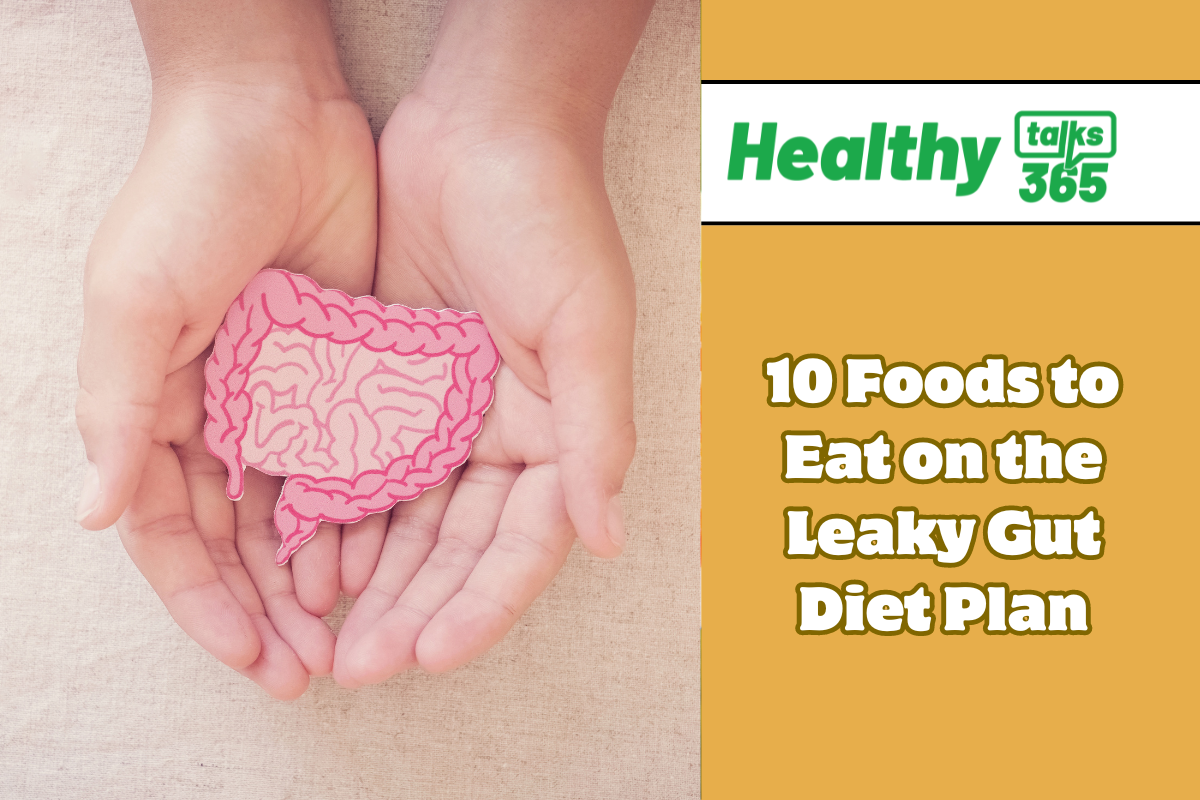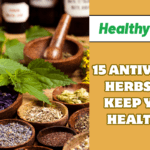10 Foods to Eat on the Leaky Gut Diet Plan
1. Bone broth can help repair the gut lining and reduce inflammation
Bone broth has gained popularity for its purported ability to support gut health and reduce inflammation. Rich in nutrients like collagen, amino acids, and minerals, bone broth is believed to provide the building blocks necessary for repairing the gut lining, which can become compromised due to factors such as poor diet, stress, or medication use.
The gelatin found in bone broth is thought to promote the growth and repair of intestinal cells, aiding in the restoration of gut integrity. Additionally, the amino acids glycine and proline, abundant in bone broth, have been shown to have anti-inflammatory properties, which may help alleviate symptoms of gut inflammation and support overall digestive health.
Read Also:
Focus While Studying: 10 Proven Methods
2. Kefir and kombucha support gut health
Kefir and kombucha have gained attention for their potential to promote gut health, offering individuals probiotic-rich options that may contribute to a balanced microbiome and improved digestive function. Kefir, a fermented milk drink, is packed with beneficial bacteria and yeast strains, which can help populate the gut with beneficial microorganisms, enhancing gut flora diversity and supporting immune function.
Kefir contains nutrients like calcium, protein, and vitamins, which can further nourish the gut and support overall well-being. On the other hand, kombucha, a fermented tea beverage, contains probiotics and organic acids that may help maintain a healthy balance of gut bacteria and support digestion. The fermentation process of kombucha also produces compounds like antioxidants and polyphenols, which have been associated with anti-inflammatory and antimicrobial properties, potentially benefiting gut health.

3. Healthy Fats repair leaky gut
Healthy fats have been suggested to play a role in repairing leaky gut, a condition where the lining of the intestines becomes permeable, allowing harmful substances to leak into the bloodstream and trigger inflammation. Incorporating sources of healthy fats, such as avocados, nuts, seeds, and fatty fish, into the diet can provide essential nutrients like omega-3 fatty acids, which have anti-inflammatory properties and may help reduce inflammation in the gut.
Healthy fats support the production of compounds called prostaglandins, which regulate inflammation and promote healing in the intestinal lining. Moreover, fat-soluble vitamins like vitamin A, D, E, and K, found in healthy fats, play crucial roles in immune function, tissue repair, and maintaining gut barrier integrity.
4. Non-starchy vegetable is a good option for leaky gut diet plan
Non-starchy vegetables are considered excellent choices for a leaky gut diet plan due to their rich nutrient content and low impact on blood sugar levels. These vegetables, such as leafy greens, broccoli, cauliflower, cucumbers, and bell peppers, are abundant in vitamins, minerals, antioxidants, and fiber, which are essential for promoting gut health and supporting the healing of a leaky gut.
Non-starchy vegetables are versatile and can be enjoyed raw or cooked in various dishes, making them easy to incorporate into a leaky gut diet plan. However, it is important to consider individual tolerances and preferences when selecting non-starchy vegetables and to monitor how they affect symptoms of leaky gut.
5. Berries, apples, and pears are good choices for people with leaky gut
Berries, apples, and pears are highly recommended for individuals with leaky gut due to their unique combination of nutrients and potential therapeutic properties. These fruits are rich in vitamins, minerals, antioxidants, and dietary fiber, all of which play crucial roles in supporting gut health and facilitating the healing process.
Berries, such as strawberries, blueberries, and raspberries, are packed with powerful antioxidants like anthocyanins and vitamin C, which help reduce inflammation and oxidative stress in the gut. Additionally, the fiber content in berries promotes regular bowel movements, prevents constipation, and supports the growth of beneficial gut bacteria.
Read Also:
Healthy Foods For Keeping Healthy Weight In Winters Cold
6. Fish is a good choice for people with leaky gut
Omega-3 fatty acids, particularly EPA and DHA found in fatty fish like salmon, mackerel, and sardines, have been linked to reduced inflammation in the gut lining and improved gut barrier function. Additionally, fish is a rich source of high-quality protein, essential amino acids, and vitamins like vitamin D and B12, which are important for overall health and immune function.
The consumption of fish provides an alternative protein source for individuals with leaky gut who may need to limit or avoid other sources of protein, such as red meat or dairy, which can be more challenging to digest and may exacerbate gut inflammation. However, it is important to choose fish that are low in mercury and other contaminants, opting for wild-caught varieties whenever possible to minimize exposure to harmful toxins.

7. Chicken and turkey should be included in Leaky Gut Diet Plan
Chicken and turkey are often recommended as part of a leaky gut diet plan due to their lean protein content and versatility in meal preparation. These poultry options provide a good source of high-quality protein, essential amino acids, and important nutrients such as vitamin B6 and niacin, which are crucial for overall health and immune function.
Chicken and turkey are generally well-tolerated by individuals with sensitive digestive systems, making them suitable protein sources for those following a leaky gut diet. However, it is important to choose organic, free-range, or pasture-raised options whenever possible to minimize exposure to antibiotics, hormones, and other potentially harmful additives commonly found in conventionally raised poultry.
8. Coconut products aid in repairing leaky gut
Coconut products, such as coconut oil, coconut milk, coconut water, and shredded coconut, are rich in medium-chain triglycerides (MCTs), which are easily digestible fats that provide a readily available source of energy for the body. Additionally, coconut products contain lauric acid, a type of fatty acid with antimicrobial and anti-inflammatory properties, which may help combat harmful bacteria and reduce inflammation in the gut.
Coconut products are naturally free from gluten, dairy, and soy, making them suitable options for individuals with food sensitivities or allergies commonly associated with leaky gut. Incorporating coconut products into the diet can provide essential nutrients like vitamins, minerals, and antioxidants, which support gut healing and overall well-being. However, it is important to choose high-quality, minimally processed coconut products and to consume them in moderation as part of a balanced diet.
9. Mackerel is a good food for leaky gut
Mackerel is often considered a beneficial food choice for individuals with leaky gut due to its high content of omega-3 fatty acids, particularly EPA and DHA. These essential fatty acids have been shown to possess anti-inflammatory properties, which can help alleviate symptoms associated with gut inflammation and support overall gut health.
Mackerel is a rich source of protein, providing essential amino acids necessary for tissue repair and maintenance of gut integrity. Moreover, mackerel contains vitamins and minerals such as vitamin D, vitamin B12, and selenium, which are important for immune function and overall well-being. Incorporating mackerel into the diet can provide essential nutrients and therapeutic compounds to support gut healing and restore balance to the digestive system.
Read Also:
11 Best Ways to Improve Your Digestion
10. Herbs and spices benefit gut health
Herbs and spices are renowned for their potential to promote gut health, offering a wide array of flavorful options that can enhance both the taste and nutritional value of meals. These natural plant-based ingredients are rich in phytonutrients, antioxidants, and anti-inflammatory compounds, which have been linked to various health benefits, including improved digestion and gut function.
Incorporating herbs and spices into the diet can help stimulate digestive enzymes, aiding in the breakdown and absorption of nutrients from food. Moreover, many herbs and spices possess antimicrobial properties that may help combat harmful bacteria in the gut, promoting a healthy balance of gut flora.




